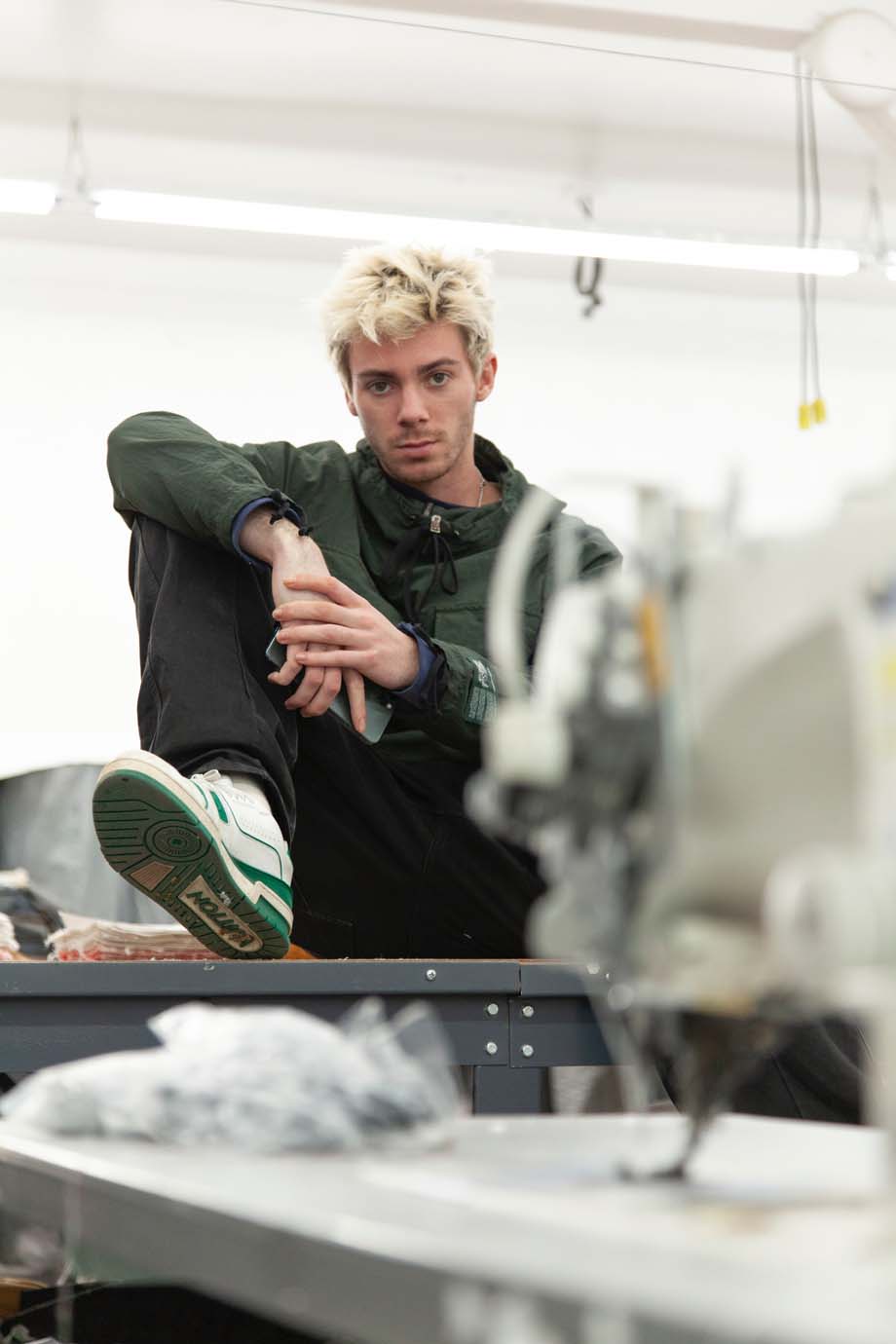
At just twenty-two years old, Reese Cooper designs with more purpose and sophistication than the leaders of most legacy brands. Instead of ready-to-wear inspired by antiquated fantasies and excess clutter, Cooper’s sartorial worlds mirror today’s only tenable runway: real life.
“Nature inspires me. I love being outside—hiking, riding bikes, taking long-ass walks—just soaking it all in. My work tries to build up an idealized world where I could be doing that shit all the time. But it’s also about finding a middle ground; as much as I’m into nature, I still love going to clubs in Paris or hanging out in New York.”
It’s days after his debut Paris presentation, IF A TREE FALLS, and we’re sitting inside his studio in downtown Los Angeles. Dressed in a pair of baggy cargos, a white shirt and a purposely distressed bomber, he’s a portrait of refined bohemia. Long gone are the days when suits connoted power and dressing up meant sharp, creased slacks. Cooper’s skill as a designer is his ability to capture contemporary trends, and then subvert them. With ease, he merges American sportswear with European leanness and low-fuss styling. Hooded sweatshirts are enriched and muted. Loose trousers are slim, deep- pocketed and functionable. Each collection feels timeless yet urgent.
“The real rush for me was taking an idea—one that I drew and conceptualized— and turning it into a physical, tangible thing. Once that happened, I was hooked.”
“A lot of fashion brands and designers create this fantasy, this romanticized ideal, but how often can you really wear that stuff? I don’t like to do that shit, I don’t like to feel like that. I try to make shit that’s wearable but can slowly help people get out of their comfort zone.”
A runner-up for 2019’s 16th CFDA/Vogue Fashion Fund award, Cooper began designing out of “pure curiosity.” Born in Atlanta, he relocated to London at age fourteen, where he became fascinated with the onset of streetwear and started interning for BAPE. “I’ve always been the kind of person who’s been able to watch something and then make it myself. After a few days learning about everything in the store, I mentally dissected it, and then went out to try to make stuff.” Training with a local seamstress, Cooper made his first batch of samples selfishly, with no intention to sell. For two years, he honed his skills privately. It wasn’t until compliments turned into personal orders that the framework for a business began. “The real rush for me was taking an idea— one that I drew and conceptualized—and turning it into a physical, tangible thing. Once that happened, I was hooked.”
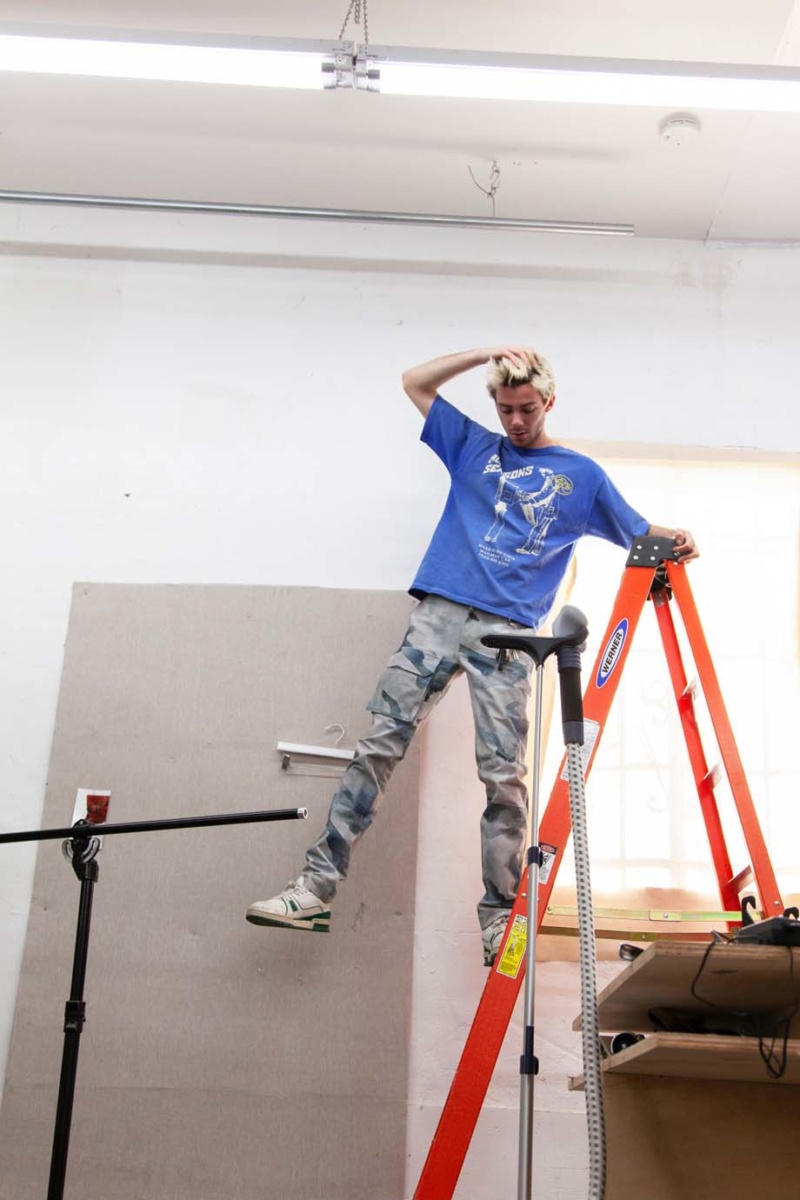
This grassroots mindset is typical of a generation raised on internet images and a sense of social responsibility. Still in work mode after a “smooth” debut in Paris, Cooper remains committed to civic consciousness. Surrounded by clothes, sketches and scraps of fabric, despite the mess, he makes sure that nothing is wasted. “Most of my items are garment dyed. Our denim is done without water. We just switched all our packaging to meet FSC certification and we’re retooling things we don’t use.”
As the world teems in environmental-economic-sociopolitical-collapse, Cooper’s fashionings offer respite.

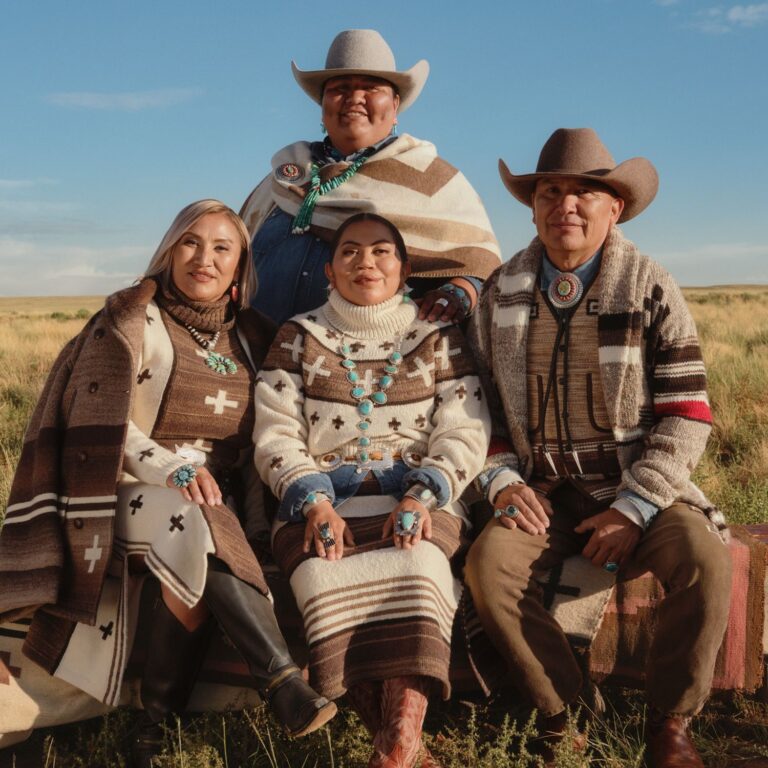
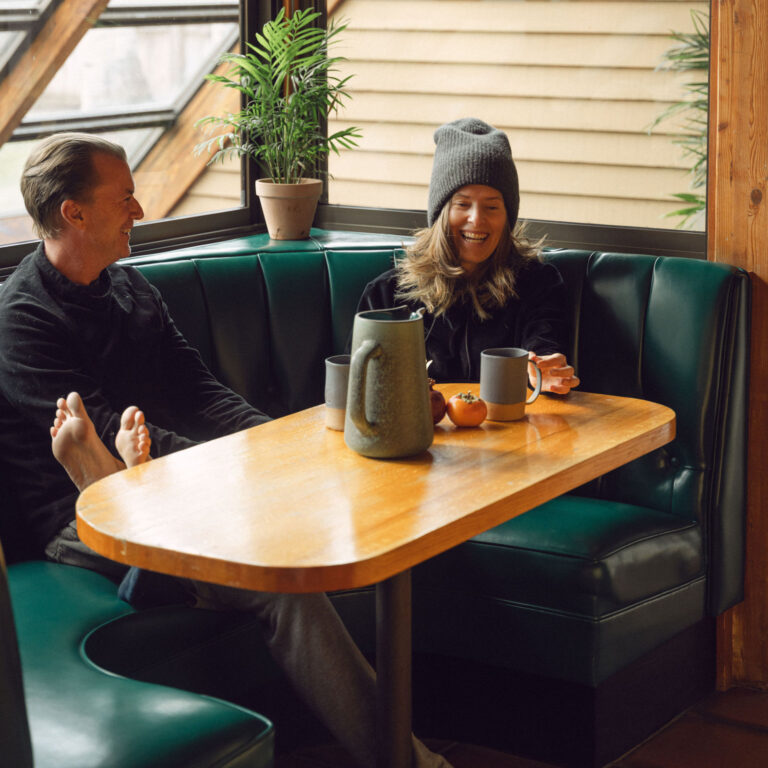

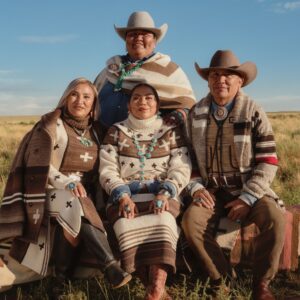
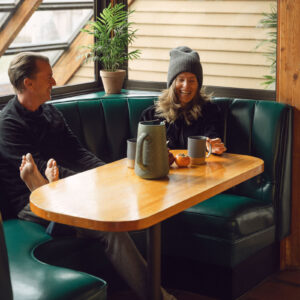




 in your life?
in your life?

